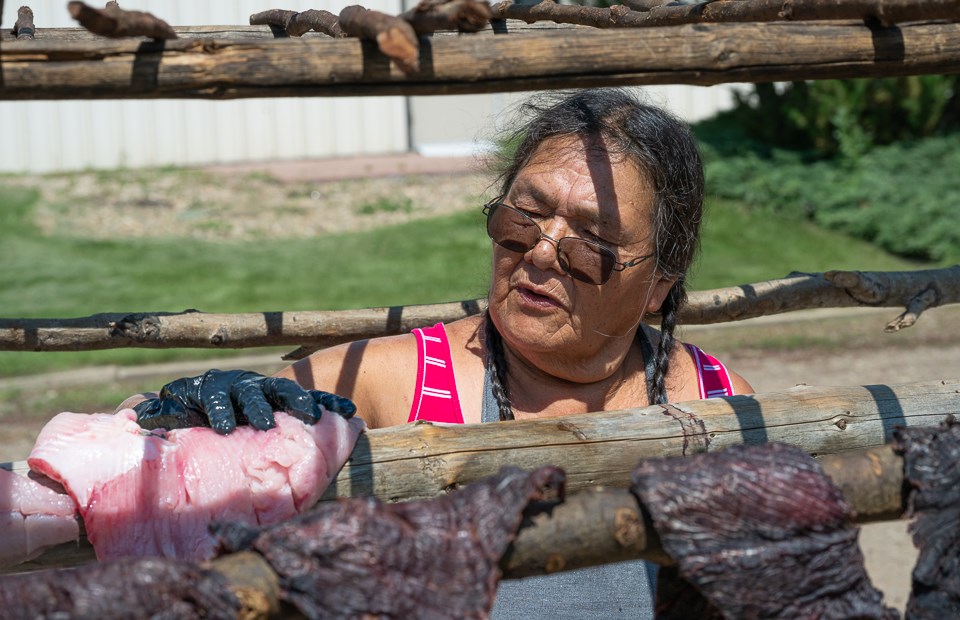NORTH BATTLEFORD — The Western Development Museum held another Tipi Teachings session, this time focusing on how to smoke meat and fish.
Marlene Bugler from Red Pheasant First Nation explained the difference between traditional and modern methods. “No preservatives or spices are used. It is just straight meat,” she said.
The process shown included making a rack out of branches. Meat or fish was hung on the rack, with a fire pit placed below.
The smoke slowly cured the meat. On windy days, First Nations would traditionally use animal pelts to keep the smoke around the meat. Today, a tarp is often used. The sun’s heat also helps with the process.
Once the meat is very dry, it can be mixed with animal grease and berries, then stored in a bag made from animal intestines. This mixture is called pemmican. It was a way to preserve food for winter and for travel, especially during buffalo hunts. It provided nutrition and energy when cooking was not possible. Smoking and preserving meat was a large part of their survival.
First Nations also relied on foraging and had deep knowledge of edible plants. “First Nations were very nomadic because they followed their livelihood. We were self-sufficient,” Bugler said.
Bugler also spoke about the spiritual beliefs of her people.
“The history books portray us as heathens, people that don't believe in God, but we're very spiritual. Everything that we do is connected to the spiritual world,” she said.
She explained that they believe in a Creator and respect the spirits of all living things, including people who have passed on.
She shared how society used to function before child welfare systems.
“Everybody helped look after the children,” she said. People had roles based on age and gender. Respect was a key part of life. Those who didn’t show respect could be ostracized, which meant having no community support. “So you really watched how you behaved,” she said.
At the demonstration, moose meat and whitefish were being smoked. When asked which part of the moose people liked best, most said the ribs. Bannock was also cooked over the fire in grease. The smoked meat was turned into soup, and everyone was invited to try some with the bannock.
The next Tipi Teachings will be held from July 28 to Aug. 1, from 9 a.m. to 4 p.m. each day at the Western Development Museum. The topic will be moose hide tanning.




